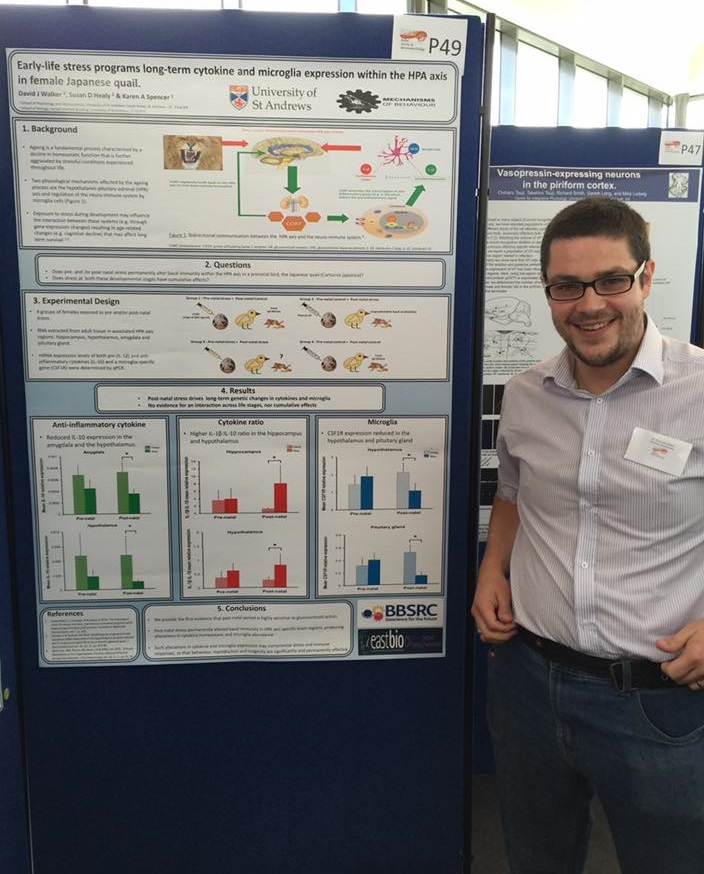 The British Society of Neuroendocrinology held its annual conference this year in Glasgow on the 28th-30th August. The conference began with an ESR training workshop covering the latest scientific techniques, science communication and publishing strategies. This was followed by a series of talks and poster presentations from students and scientists from around the world showcasing the latest pioneering research in the field of neuroendocrinology.
The British Society of Neuroendocrinology held its annual conference this year in Glasgow on the 28th-30th August. The conference began with an ESR training workshop covering the latest scientific techniques, science communication and publishing strategies. This was followed by a series of talks and poster presentations from students and scientists from around the world showcasing the latest pioneering research in the field of neuroendocrinology.
Two of our Eastbio DTP students, Angus Reid (University of Edinburgh) and David Walker (University of St Andrews; see photo on the right), received joint first prize for their poster presentations at the event.
Angus is undertaking his research at Edinburgh’s Roslin Institute (home of Dolly the Sheep). The institute’s research directed toward characterising hunger and satiety feedback in chickens aims to alleviate current welfare concerns as well as ensure global food security. Angus’s poster explained diet-dependent expression of the satiety hormone peptide YY (PYY) in chickens and detailed how this avian model differs from what is reported in the mammalian literature. His results, besides demonstrating the first assay to measure PYY expression directly in chickens, suggest that PYY is mainly expressed in the avian pancreas and acts as a short-term regulator of appetite whereas its well-documented pancreatic paralogue Pancreatic Polypeptide (PPY) appears to be responsible for longer-term energy homeostasis. These results will be submitted for publication later this year, after completion of a comparative experiment in a mammalian model (mouse).
David presented work describing how early-life stress induces long-term effects on systems regulating stress and immune responses within the central nervous system of female Japanese quail (Corturnix japonica). David, supervised by Drs Karen Spencer and Sue Healy, found that post-natal stress induced a decline in the levels of basal microglia and fluctuations in the expression of cytokines secreted by these cells. These results highlight the importance that developmental stress has long-term consequences for an individual’s ability to respond to stress and immune challenges, such that behaviour, reproduction and longevity are significantly affected. This work is currently being written up as a manuscript intended for publication.











